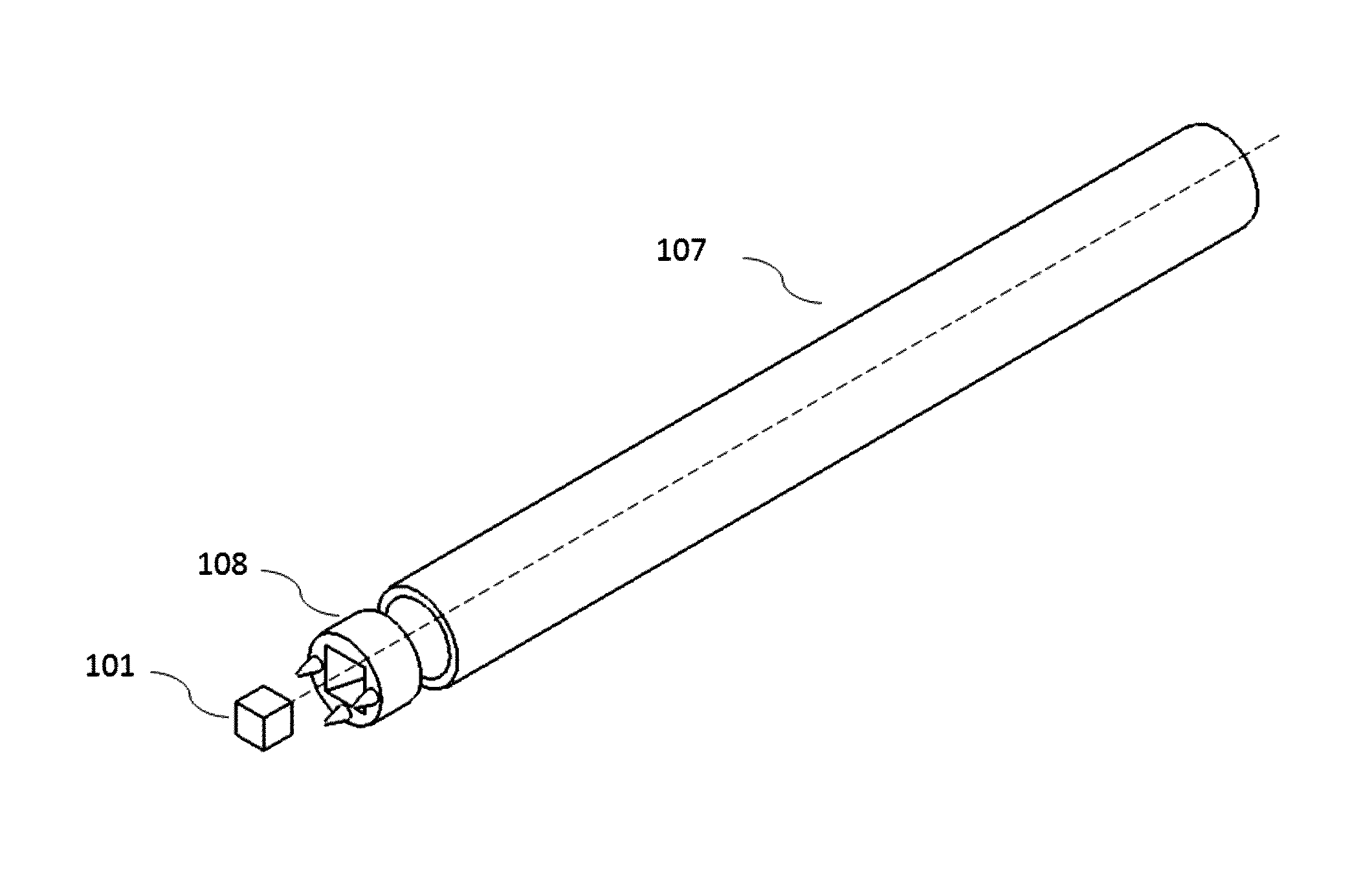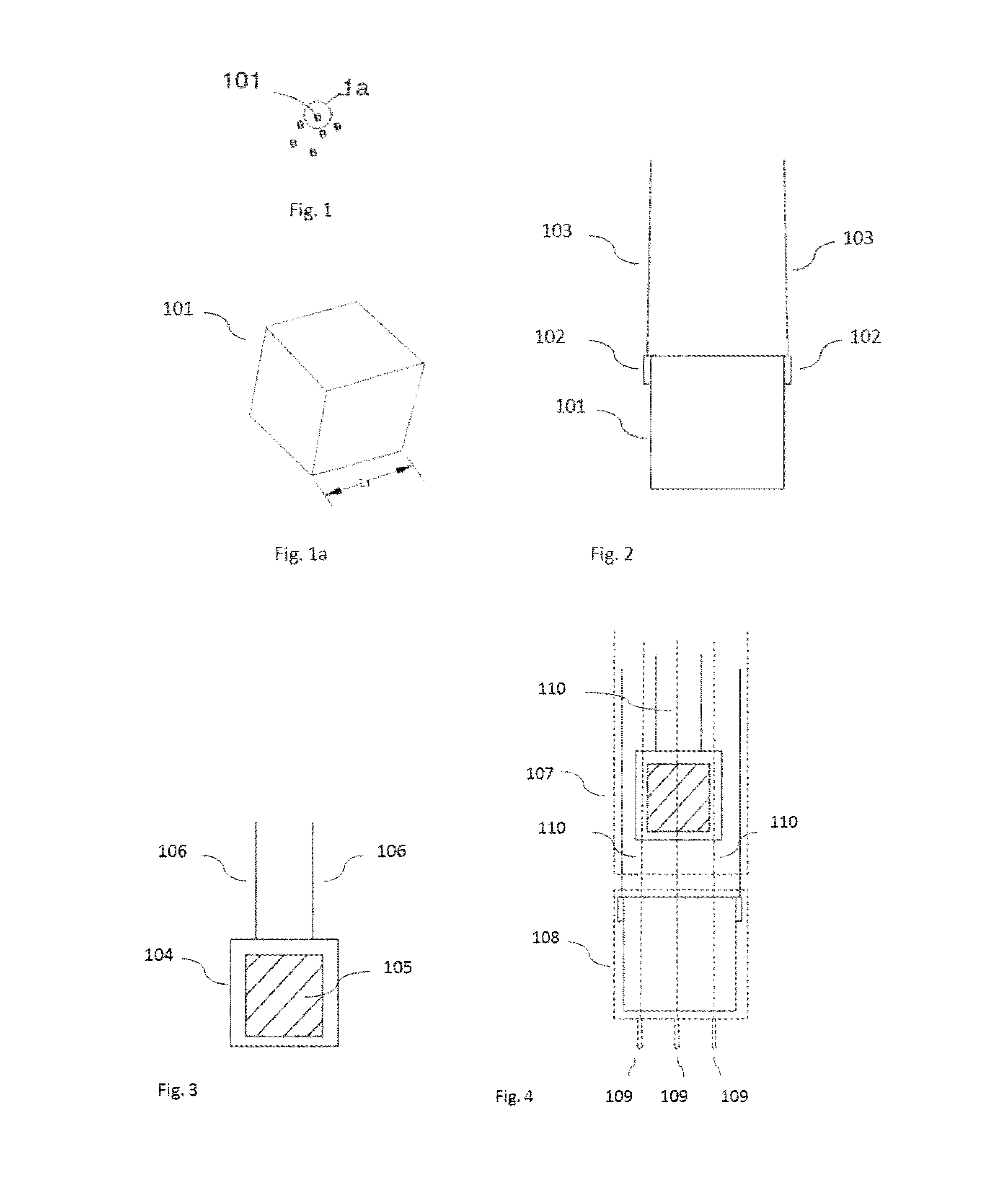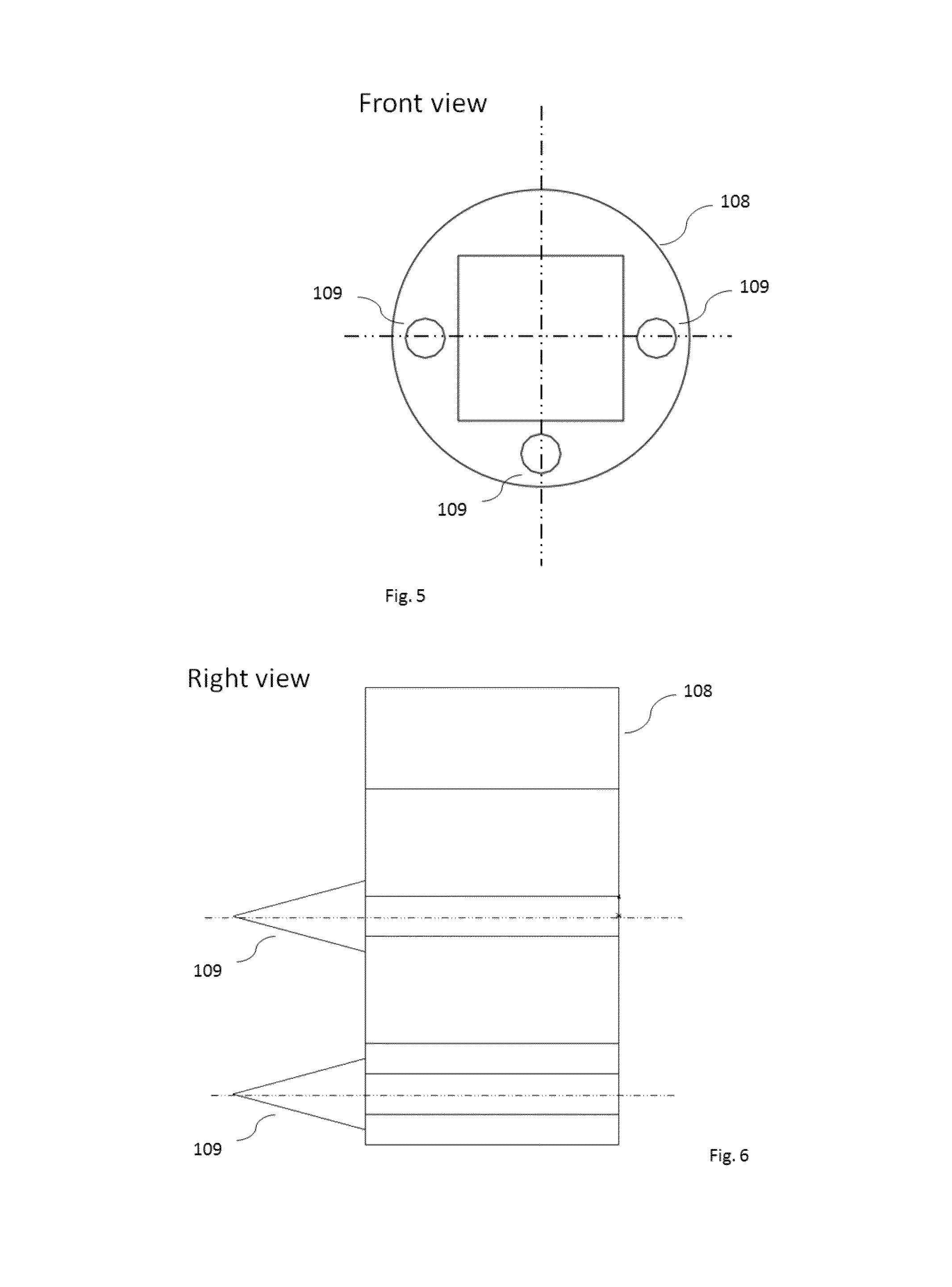Miniaturized thermal system formed with semiconductor material with medical applications
a thermal system and semiconductor technology, applied in the field of miniaturized thermal systems formed with semiconductor materials with medical applications, can solve the problems of large fibers not giving information about small fibers, significant dehydration, and explosion
- Summary
- Abstract
- Description
- Claims
- Application Information
AI Technical Summary
Benefits of technology
Problems solved by technology
Method used
Image
Examples
first embodiment
[0097]The first embodiment is intended to be used for human diagnostic testing of small nerve fibers whose endings are contained in the epidermis. Small fibers are a type of sensory nerve receptors that send signals to the brain and respond with a perception of pain if a potentially damaging thermal stimulus is acting. A thermal stimulus and sense electrodes are injected intra-epidermally through a disposable probe. The thermal intra-epidermal stimulus consists of the parts shown in FIGS. 1 through 2 and consists of an electronically heated temperature-controlled polymer covered semiconductor material 101 of micron dimensions, hence it is designated as a miniaturized thermal stimulus. Electronic heating of the polymer covered semiconductor material 101 occurs through a combination of thermoelectric, thermomagnetic or resistive heating, or may occur through only one of these effects. Temperature control of the polymer covered semiconductor material 101 to an accuracy of 1° C. is expe...
PUM
 Login to View More
Login to View More Abstract
Description
Claims
Application Information
 Login to View More
Login to View More - R&D
- Intellectual Property
- Life Sciences
- Materials
- Tech Scout
- Unparalleled Data Quality
- Higher Quality Content
- 60% Fewer Hallucinations
Browse by: Latest US Patents, China's latest patents, Technical Efficacy Thesaurus, Application Domain, Technology Topic, Popular Technical Reports.
© 2025 PatSnap. All rights reserved.Legal|Privacy policy|Modern Slavery Act Transparency Statement|Sitemap|About US| Contact US: help@patsnap.com



